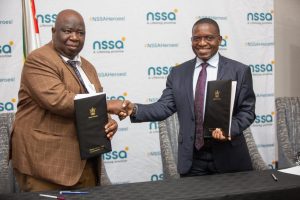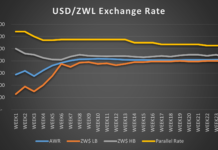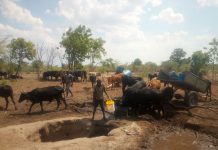
By Talkmore Gandiwa
The Tshiamiso Trust has partnership with the National Social Security Authority (NSSA) to assist former Zimbabwean mineworkers who developed permanent lung diseases—specifically silicosis and work-related tuberculosis (TB)—after working in qualifying South African gold mines.
The partnership, sealed through a memorandum of understanding (MoU), formalizes collaboration between the two entities to ensure that eligible former mineworkers and their dependents can access the compensation due to them.
The agreement marks a crucial step in bringing these life-changing services closer to affected individuals who, until now, often faced the burden of traveling across borders to lodge claims and undergo medical examinations.
Following a competitive Request for Proposals (RFP) process, Baines Occupational Health Services was appointed in November 2024 as the accredited service provider to conduct both lodgement and Benefit Medical Examination (BME) services. Clinics located in Harare, Gweru, and Bulawayo will begin offering assistance to claimants from November 2025, marking the first time these services will be available locally in Zimbabwe.
Tshiamiso Trust Chief Executive Officer, Dr. Munyadziwa Kwinda, said the partnership with NSSA is a major milestone in the Trust’s regional strategy to reach more eligible claimants across Southern Africa.
“We are honoured to mark this moment in partnership with the Government of Zimbabwe and NSSA,” he said. “Thousands of Zimbabwean ex-mineworkers have been waiting for Tshiamiso Trust services to commence so they can access the compensation they may qualify for. Today’s agreement means they can now lodge their claims and complete the medical assessments required to determine eligibility for compensation.”
Kwinda emphasized that the initiative goes beyond financial assistance—it is about restoring dignity and fulfilling a moral and historical commitment to those who built the mining industry in South Africa under harsh and often unsafe conditions.
“This is about delivering on the promise made to the men and families whose sacrifices shaped the mining sector. They deserve recognition, justice, and the compensation that is rightfully theirs,” he said.
NSSA Chief Executive Officer, Dr. Charles Shava, also applauded the partnership, describing it as a vital development in advancing social protection for Zimbabweans who once worked in South African mines.
“Zimbabwe is home to many who spent their productive years working underground in South Africa’s mines and returned home with illnesses that changed the course of their lives,” Shava said. “Through this collaboration, we are ensuring that those who qualify can now access their compensation closer to where they live.”
He added that NSSA remains committed to fostering regional cooperation to enhance social security systems and ensure that cross-border workers receive fair treatment and protection. “This partnership reflects our shared vision of expanding social protection and safeguarding the dignity of workers across borders,” Shava noted.
The Tshiamiso Trust clarified that the compensation scheme is open to specific groups of people who meet clearly defined criteria. Eligible claimants include:
Former mineworkers who worked in qualifying South African gold mines between 12 March 1965 and 10 December 2019. Former workers diagnosed with permanent lung impairment due to silicosis or work-related TB contracted during their employment. Dependents of deceased mineworkers, provided the death resulted from silicosis or TB under the qualifying conditions.
Beginning November 2025, eligible claimants will be able to lodge claims and complete BMEs at Baines Occupational Health Services clinics in Harare, Gweru, and Bulawayo.
To qualify, mineworkers must have carried out risk work—work involving exposure to silica dust—at one of the listed gold mines in the Tshiamiso Trust’s Schedule F of the Trust Deed, during the stated qualifying period.
Kwinda said the living mineworkers must show evidence of permanent lung damage resulting from silicosis or TB contracted while performing risk work while those who worked for less than five years in qualifying mines will be required to pay R1,900 (South African Rand) for their medical examination. However, this fee will be refunded if the claim is deemed eligible. Individuals who performed five or more years of qualifying work will receive a free medical examination.
For deceased mineworkers, eligibility requires either proof that the individual died from work-related TB within one year of leaving the mine (for TB-related claims) or evidence that the deceased had silicosis, or died from the disease between 1 January 2008 and 10 December 2019.
“These are the broad eligibility criteria,” explained Dr. Kwinda. “Each claim is carefully reviewed in accordance with the provisions outlined in the Trust Deed. Specific requirements apply to each of the ten categories of compensation available, ensuring fairness and accuracy in the assessment process.”
The partnership between Tshiamiso Trust and NSSA represents a beacon of hope for thousands of Zimbabwean families who have long awaited compensation for occupational diseases contracted decades ago. Many of these former mineworkers endured harsh working conditions in South Africa’s gold mines, contributing significantly to the industry’s growth while sacrificing their health.
With the establishment of local facilities and a streamlined process for claim submission and medical evaluation, the initiative is expected to make a tangible difference in improving access to justice and healthcare for affected individuals.
As both organizations reaffirm their commitment to transparency, fairness, and compassion, this collaboration stands as a powerful testament to the importance of regional solidarity and shared responsibility in addressing historical injustices faced by Southern Africa’s mining communities.















